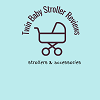Attention Deficit Hyperactivity Disorder or ADHD in medical terms; is a psychiatric disorder in children. It is a neurobehavioral development disorder and most symptoms are evident before seven years of age. ADHD may affect certain parts of the brain particularly in the areas of problem solving, planning ahead, understanding others’ actions, and impulse control. It may be manifested by attention problems paired with hyperactivity. Children with ADHD have difficulty with time management, organizational skills, goal setting, and most especially getting employment later in life. They may also have problems with relationships, self-esteem, and may be involved in problems of drug addictions. Children who have ADHD will have a hard time focusing on the proper action to take without thinking. Most of the time they may understand when given a task but have a lot of trouble following instructions because they can’t sit still and pay attention to details, they are always in motion.
There are several types of children suffering from ADHD: one of which is the inattentive type, or those who are unable to pay attention to details. Children of this type has a tendency to commit errors in school or any other activities since they have difficulty in following instructions, easily distracted and has problems with organization, forgetfulness in their daily activities, impaired listening skills and they dislike tasks that require mental effort and concentration. The second is the hyperactive-impulsive type who manifests sign that may include excessive talking, unable to remain in one place, and has difficulty in playing quietly. They are the type of children who always blurts out answers before hearing the full question and has a difficulty waiting for his turn. The third type is the combined type wherein manifestation of the two types can be seen in a child.
ADHD management includes medications, different behavioral modification activities that involve parents and guardians counseling and may include lifestyle changes and psychotherapy interventions. Stimulants are often the choice of drug to lessen hyperactivity however medication alone will not cure or lessen signs of ADHD. This may involve psychological therapies or the cognitive-behavioral therapy which helps ADHD patients learn attentive way to handle emotions, increase self-awareness and self esteem, cope with daily problems in life and take control of their aggression and impulsivity. Behavioral therapy specifically deals with current issues, stimulates thinking and coping mechanism to act directly. These tasks aim to resolve a better way and gives positive reinforcement for each good behavior. Family therapy is an essential part of the treatment in which members of the family takes part in the curative process. Once they know what the correct response to the child’s attitude is; proper management for a child with ADHD is attained.


0 Comments